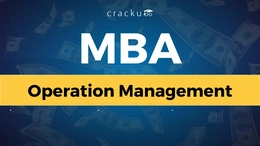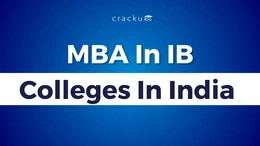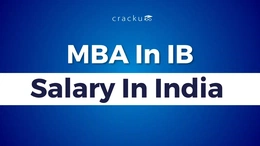MBA In Finance Fees: MBA in Finance remains one of the most sought-after specialisations in India. Over 35,000 students apply annually for finance-focused MBA programs. Top institutes like IIM Ahmedabad, ISB Hyderabad, and XLRI Jamshedpur offer advanced finance modules. Fees for an MBA in Finance range between ₹8 lakhs and ₹35 lakhs, depending on the college. Private institutes charge higher fees, while government colleges offer affordable options. Many students also explore scholarships and education loans. MBA Finance programs include core subjects like financial modelling, equity research, and corporate finance. The fee includes tuition, hostel, library, and other academic charges. Updated details below help aspirants plan admissions, budget accurately, and choose the right institute.
MBA in Finance Fees in India 2025
The following table fee details covers the overall cost required to complete an MBA in Finance from any Indian institute. Fees include tuition, campus facilities, exams, and course materials. Institutes located in metropolitan cities generally have higher fees. Additional expenses may include accommodation, food, and international immersion programs. Top B-Schools also provide placement support as part of the fees.
| Institute Type | Fee Range (Approx.) |
| Government Colleges | ₹8 – ₹27 lakhs |
| Private Colleges | ₹15 – ₹35 lakhs |
| Tier-2 B-Schools | ₹5 – ₹12 lakhs |
| Distance MBA | ₹1 – ₹3 lakhs |
Also Read, MBA In HR Fees in India 2025, Colleges-wise Fee Structure
MBA Finance Course Fees in India
Highlights the tuition and program fees charged by institutes offering MBA Finance programs. Tuition fees form the largest component of MBA Finance programs. Institutes charge based on faculty, infrastructure, and global partnerships. Programs offered by IIM colleges or ISB include global certifications or international modules, adding to the cost. Fees also depend on course format—full-time, part-time, or executive MBA. Colleges also offer fee waivers based on merit or financial need. Online programs offer flexibility with lower costs. Regular classroom programs attract higher fees due to operational costs.
Additional Components of Course Fees:
- Tuition Charges
- Library and Lab Access
- Guest Lectures and Workshops
- Project and Case Study Access
- Learning Materials and Books
Also Read, MBA Finance Salary in India 2025, Average Salary, Top Colleges
MBA in Finance Cost in India
Provides a breakdown of the average MBA Finance cost in Indian MBA colleges. MBA Finance cost in India depends on the location and affiliation of the institute. B-schools in Mumbai, Delhi, and Bangalore tend to charge higher fees. Government-aided institutes provide financial aid and subsidised options. Private autonomous colleges often include value-added courses, increasing the overall cost. Hostels and mess charges may add ₹1–2 lakhs annually. Scholarships by state governments or corporate sponsors help reduce the burden.
| Cost Component | Approximate Range |
| Tuition Fees | ₹5 – ₹27 lakhs |
| Hostel & Mess | ₹1 – ₹2.5 lakhs |
| Learning Materials | ₹20,000 – ₹60,000 |
| Global Immersion | ₹1 – ₹4 lakhs |
| Exam & Miscellaneous | ₹15,000 – ₹40,000 |
Also Read, Which Field Is Best For MBA In India 2025? Compare Now
Top MBA Colleges for Finance Fees
The following table lists the top MBA colleges in India with their current finance program fees. Top B-schools offering MBA Finance include IIMs, XLRI, FMS Delhi, and NMIMS. Each of these institutes has a dedicated finance curriculum with hands-on modules. These colleges attract top recruiters in banking and consulting. Fees reflect the academic value, brand recognition, and career opportunities. The following table includes updated fees for the 2025 batch.
| College Name | MBA Finance Fees (₹) |
| IIM Ahmedabad | ₹26.5 lakhs |
| ISB Hyderabad | ₹45 Lakhs (PGP) |
| IIM Bangalore | 26.5 Lakhs |
| IIM Calcutta | ₹27 lakhs |
| XLRI Jamshedpur | ₹30.6 lakhs |
| SPJIMR Mumbai | ₹24 lakhs |
| NMIMS Mumbai | ₹25 lakhs |
| FMS Delhi | ₹2.32 lakhs |
| MDI Gurgaon | ₹25.99 lakhs |
Also Read, Top MBA Colleges For Finance In India, Placements, Ranking
MBA Finance Fees Structure
MBA Finance fees are structured into multiple categories. Each institute prepares a detailed fee breakup before admissions. The largest portion goes toward tuition. Additional charges include infrastructure, IT services, library, and student activities. Many colleges ask for a one-time refundable caution deposit. Payments are generally split into instalments across semesters. Some institutes also charge extra for international exposure programs.
Typical Fee Structure:
- Tuition Fee: 70% of the total cost
- Infrastructure Fee: 10%
- Hostel & Mess: 10%
- Activity and Miscellaneous Charges: 5%
- Security Deposit (Refundable): 5%
Also Read, Best MBA In Hospital Management Colleges In India 2025
MBA in Finance Admission Fees
Details the admission-related charges during the application and enrolment process. Admission fees cover application, registration, and seat confirmation costs. Most B-schools charge an application fee between ₹1,500 and ₹3,000. Once selected, candidates must pay an admission deposit to secure a seat. Admission deposit ranges from ₹50,000 to ₹2 lakhs, adjusted against the first-semester fees. This fee ensures confirmation of admission and blocks a candidate’s seat. In case of withdrawal, a partial refund may apply based on the institute's policy.
Admission Fee Components:
| Fee Component | Amount (₹) |
| Application Fee | ₹1,500 – ₹3,000 |
| Registration Fee | ₹10,000 – ₹25,000 |
| Admission Deposit | ₹50,000 – ₹2,00,000 |
| Document Verification Charges | ₹2,000 – ₹5,000 |
MBA In Finance Fees in India 2025: Conclusion
MBA in Finance offers a strong return on investment through high-paying roles in finance, banking, and consulting. Fees for top colleges range between ₹8 lakhs and ₹35 lakhs. Course fees depend on location, facilities, and the institute's reputation. Aspirants must plan their finances before applying to top-tier B-schools. A detailed fee structure helps evaluate total costs accurately. Institutes offer scholarships, instalment payment options, and educational loans. A well-chosen MBA Finance program delivers both value and career growth.



































